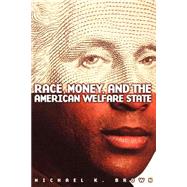Race, Money, and the American Welfare State
, by Brown, Michael K.- ISBN: 9780801485107 | 080148510X
- Cover: Paperback
- Copyright: 5/1/1999
The American welfare state is often blamed for exacerbating social problems confronting African Americans while failing to improve their economic lot. Michael K. Brown contends that our welfare system has in fact denied them the social provision it gives white citizens while stigmatizing them as recipients of government benefits for low income citizens. In his provocative history of America's "safety net" from its origins in the New Deal through much of its dismantling in the 1990s, Brown explains how the forces of fiscal conservatism and racism combined to shape a welfare state in which blacks are disproportionately excluded from mainstream programs. Brown describes how business and middle class opposition to taxes and spending limited the scope of the Social Security Act and work relief programs of the 1930s and the Great Society in the 1960s. These decisions produced a welfare state that relies heavily on privately provided health and pension programs and cash benefits for the poor. In a society characterized by pervasive racial discrimination, this outcome, Michael Brown makes clear, has led to a racially stratified welfare system: by denying African Americans work, whites limited their access to private benefits as well as to social security and other forms of social insurance, making welfare their "main occupation." In his conclusion, Brown addresses the implications of his argument for both conservative and liberal critiques of the Great Society and for policies designed to remedy inner-city poverty.






